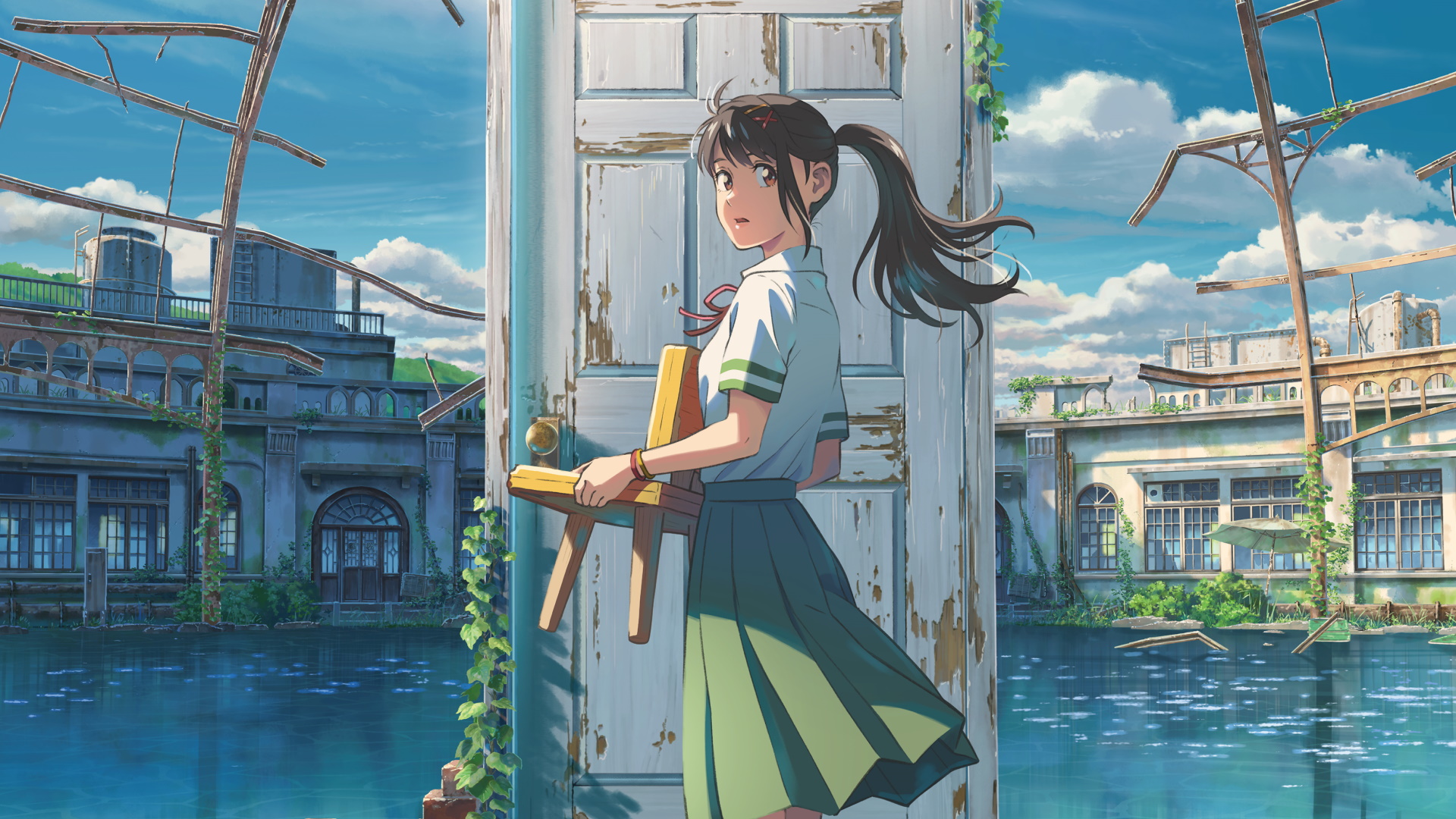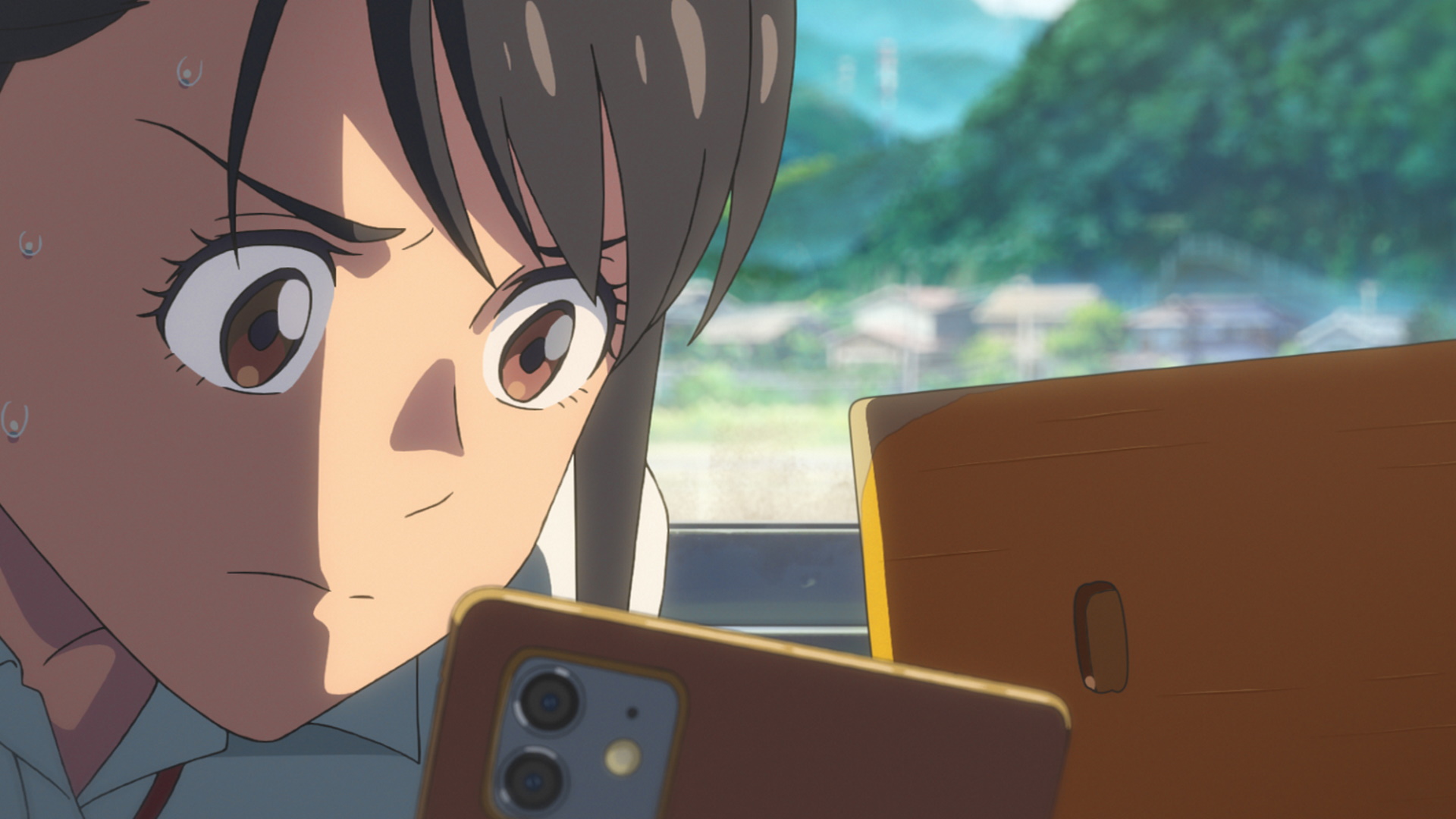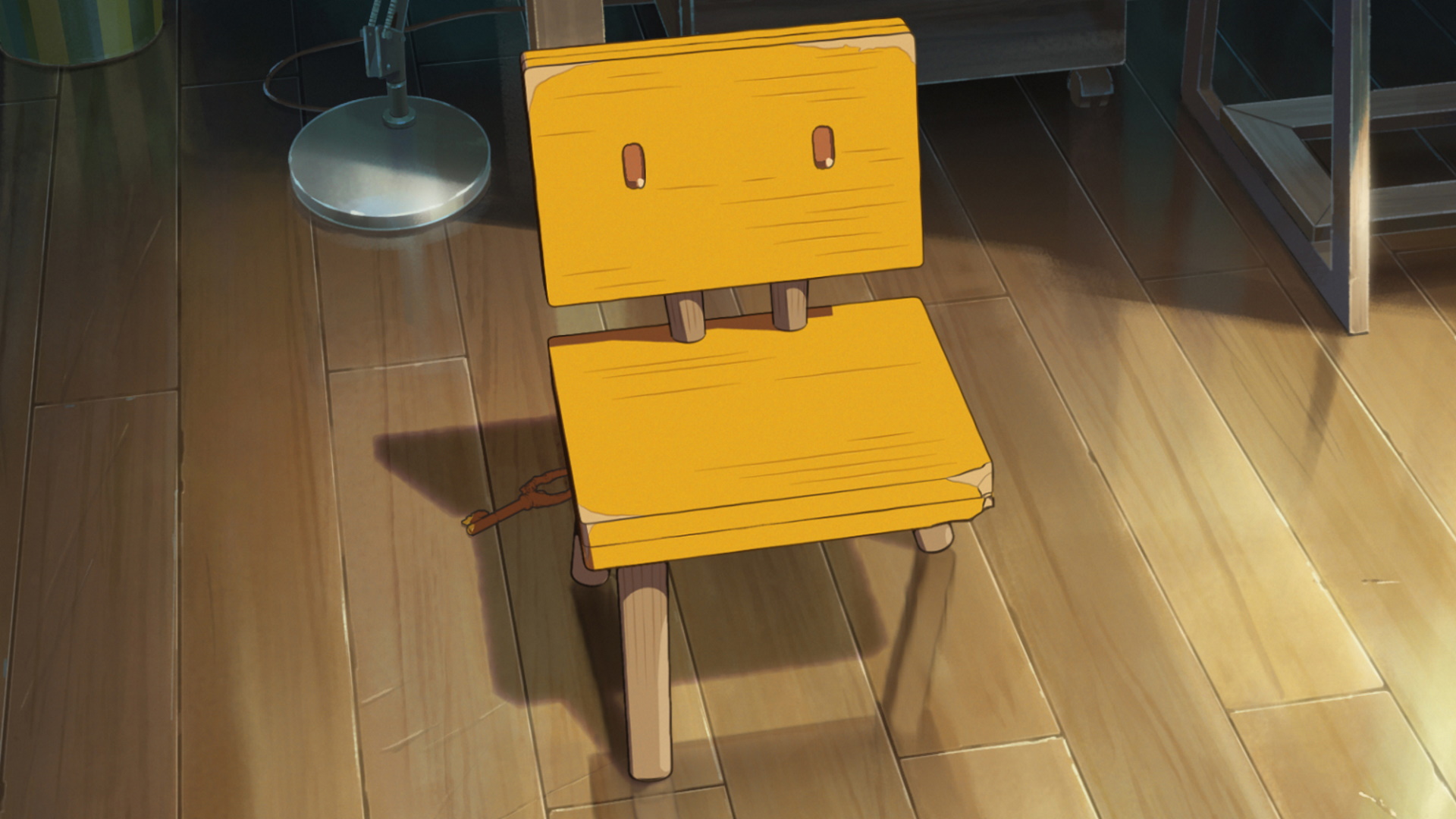Suzume's Makoto Shinkai on the importance of comedy in the face of darkness
The director of Suzume talks three-legged chairs, trauma, and natural disasters

The latest anime movie from director Makoto Shinkai, Suzume, is finally now in theaters in the US and UK. Shinkai is perhaps best known for anime like 2016’s critically acclaimed Your Name and 2019’s Weathering with You. Ahead of Suzume’s international release, Total Film had the opportunity to speak with Shinkai about the release and all of its thematic underpinnings. And three-legged chairs, of course.
If you’re not familiar, Suzume focuses on a high school girl named Suzume Iwato that lives with her aunt. Through a series of unlikely encounters, she ends up traveling across Japan to a number of different ruins, closing doors that cause disasters. Notably, a major part of the film deals with the disastrous circumstances following the 2011 Tohoku earthquake and tsunami, and Shinkai was fairly open during the interview about the effect of the real-life disaster on his worldview.

Total Film: Congrats on the impending full international release. How does it feel?
Makoto Shinkai: Certainly a little bit nervous right now. The North American release is still in April, and across many Asian countries the movie was released theatrically, and it has outperformed our expectations for which I'm really grateful that the film resonated. But how that translates to the US audience remains to be seen. So definitely still a little nervous.
Now I have to ask, without spoiling anything, I feel like the choices of what to feature in your films are very deliberate. So why the three-legged chair, of all possible things?
One of the central themes of this film is, of course, the 2011 Tohoku Great East Japan earthquake, and taking on that disaster as a theme face to face would have resulted in a very dark and almost too heavy of a film. So in order to offset that, and still do the theme justice, you wanted to lighten up the mood a little bit, so I brought in this comical character to be Suzume’s sidekick and achieve that.
And I'll try my best to not spoil this. There might be a little bit, but in terms of why the chair is three legged… The first is I felt that that gave it a bit more comical, kind of funny feel. I mean, you'd look at a three-legged chair, the off-balance sort of awkwardness, even watching the chair walking alone gives a comic relief to the film. The second, a little deeper, but the chair was presumably washed away during the tsunami before it was rediscovered, and in that process, lost one of its legs and to me that is a metaphor for Suzume’s mind if you will, her loss and her grief that she experienced as a result of the earthquake and tsunami.
Sign up for the Total Film Newsletter
Bringing all the latest movie news, features, and reviews to your inbox
But in spite of that loss and her losing her mother, the chair only having three legs as Souta, he's still able to live his life and run all the way across Japan despite having three legs. I think that there is a beautiful metaphor there.

Particularly when it comes to trauma, there's this idea that repetition through fiction can allow us to come to terms with those feelings, to finally recover in some ways. Obviously your work has dealt with natural disasters frequently, but perhaps never quite so directly with a one-to-one real-life analog as Suzume. How do you feel that your creation of the movie has allowed you to personally process the 2011 earthquake and tsunami – or has it?
How the 2011 disaster affected me, I think, certainly I wasn't a direct firsthand victim of the incident. Having lived in Tokyo, we were somewhat removed. But nonetheless, I would say that that incident has changed my life. It changed my mindset and my worldview, and the types of movies I created afterwards. And part of me, I think, goes back to the idea that it wouldn't be too much of a stretch of the imagination to think that I could have been directly affected or involved had I been living in the Tohoku region, or had the earthquake happened in Tokyo, what would that have done to all of our lives had we been directly affected?
So that could happen today, tomorrow, maybe not for a while. That anxiety and uncertainty also of living in Japan, side by side with disaster that could happen at any moment, I constantly think about why I and we all continue to choose to live in Japan. And this has been a huge theme for myself over the past 10 years that I have been thinking about.
So, now that I've completed Suzume, have I completed that journey with trying to come to terms with or understand that disaster, or will my next film or my next, next film also take on disaster as a central theme? I'm at the moment unsure, and it'll probably take me a few more months before I kind of hone in my ideas on this blank slate of what kind of story I want to tell next.
Suzume is officially now in theaters in the US and UK with Crunchyroll handling international distribution and marketing. The anime film was released in Japan late last year. Makoto Shinkai notably previously directed the anime movies Your Name and Weathering with You. If you’re curious about the new film, you might want to check out some of the other best anime movies.

Rollin is the US Managing Editor at GamesRadar+. With over 16 years of online journalism experience, Rollin has helped provide coverage of gaming and entertainment for brands like IGN, Inverse, ComicBook.com, and more. While he has approximate knowledge of many things, his work often has a focus on RPGs and animation in addition to franchises like Pokemon and Dragon Age. In his spare time, Rollin likes to import Valkyria Chronicles merch and watch anime.


